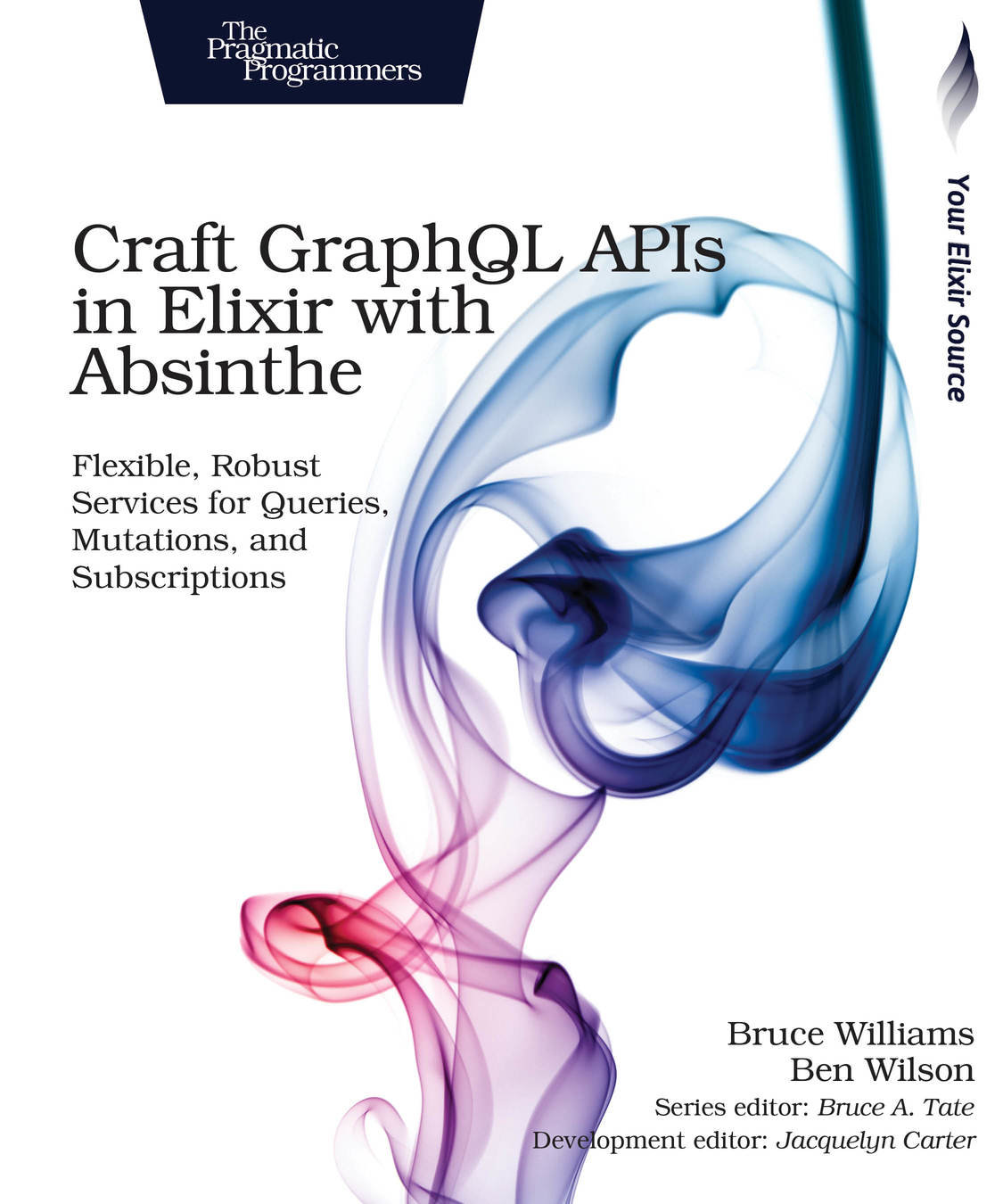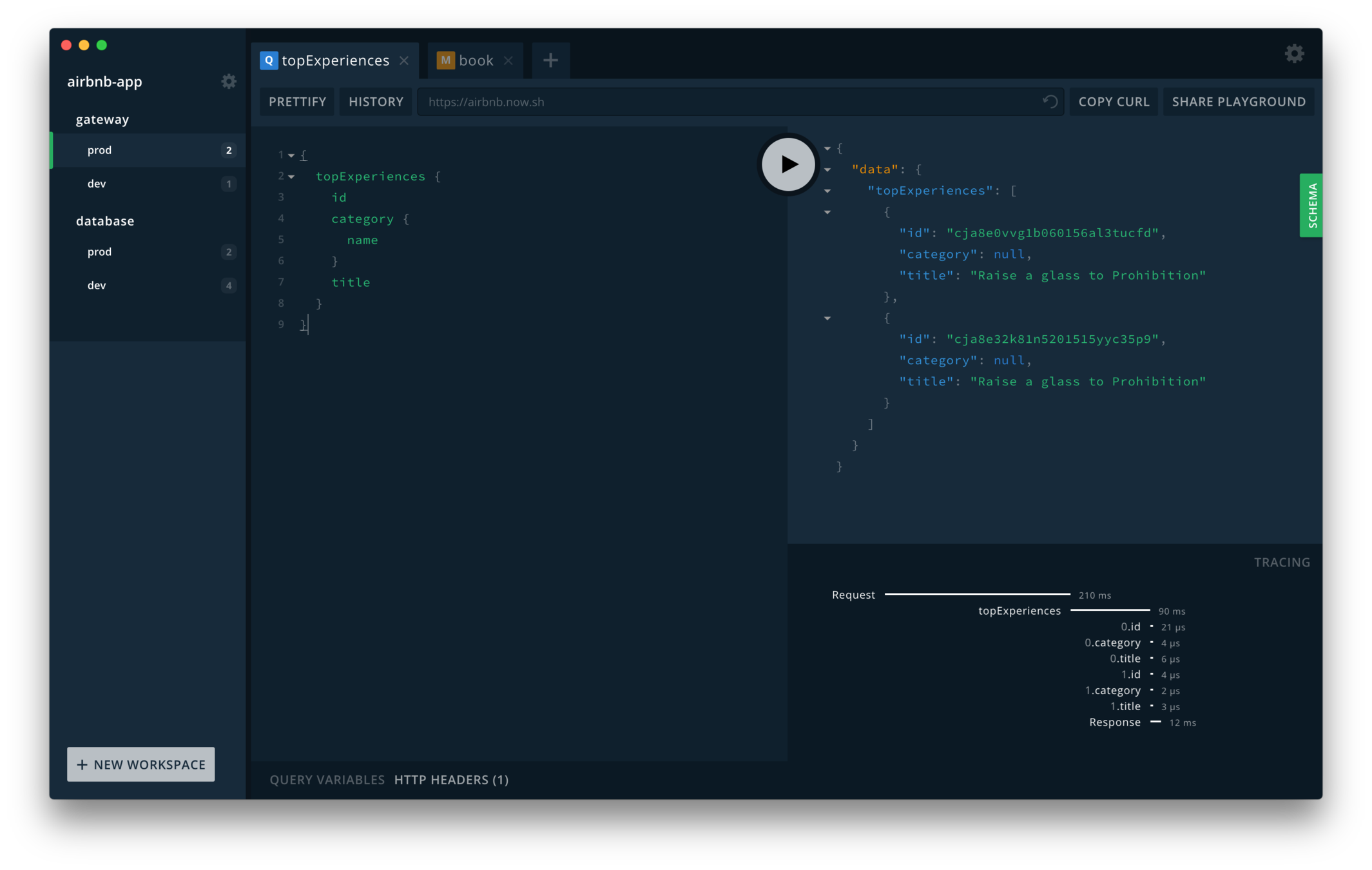BUILDING
production-ready
GraphQL
APIS
Ben Wilson
Bruce Williams
AGENDA
Agenda: day 1
| 08:30 | 10:00 | Intro, GraphQL Basics, App Setup |
| 10:00 | 10:30 | Break |
| 10:30 | 12:00 | Core Types & Modeling |
| 12:00 | 01:30 | Lunch |
| 01:30 | 03:00 | Subscriptions & Auth |
| 03:00 | 03:30 | Break |
| 03:30 | 05:00 | Complex Modeling & Batching |
Bruce williams

Twitter: @wbruce
GitHub: @bruce
Elixir Forum: @bruce
Elixir Slack: Bruce Williams

BEN WILSON
Twitter: @benwilson512
GitHub: @benwilson512
Elixir Forum: @benwilson512
Elixir Slack: benwilson512


industry 1
INDUSTRY 2
INDUSTRY 3

EST. Oct 2015
v1.4
Absinthe

v1.5
NEXT:
pipeline-based schema definition system
NEW LEXER
schema stitching
graphql SDL support
more flexible imports
elixir graphql client
ALPHA (to be released following ElixirConf)
BETA
PERFORMANCE improvements

GraphQL
Basics

Graph
Query
Language
data query language
compare to: sql
query {
post(id: "abc-123") {
title
publishedDate
author {
name
}
body
}
}{
"data": {
"post": {
"title": "ElixirConf 2018",
"publishedDate": "2018-09-04",
"author": {
"name": "Bruce Williams"
},
"body": "..."
}
}
}you get what you ask for
http api
compare to: rest
query ($userId: ID!, $since: Date) {
user(id: $userId) {
posts(since: $since) {
title
publishDate
}
}
}{"userId":"12", "since":"2018-01-01"}{
"data": {
"user": {
"posts":[
{"title": "Example1", "publishDate":"2018-01-01"},
{"title": "Example2", "publishDate":"2018-01-02"}
]
}
}
}GraphQL
variables
result
it's not just about queries
query
Subscribes to an event,
requests information be
sent later (over WS, etc)
query ($search: String, $limit: Int = 10) {
posts(matching: $search, limit: $limit) {
title
author { name }
}
}mutation
Requests information.
mutation ($postContent: PostInput!) {
createPost(input: $postContent) {
assignedEditor { name }
publicationStatus
}
}subscription ($postId: ID!) {
reviewCompleted(postId: $postId) {
editor { name }
requestedChanges {
changeType
notes
}
}
}Modifies data, requests
information in response.
subscription
GraphQL Operations
websocket!
how it works
schema
a graph of relationships between types
Post
Comment
User
posts
author
comments
subject
String
Date
name
birthdate
Object types
, fields
, and extensible scalar types
... plus enumerations, unions, interfaces, and others
Defining a GraphQL Schema
Post
User
posts
Defining a GraphQL Schema
Fields define relationships between types
name
String
author
Post
User
posts
Query
Root
posts
post
user
users
Root object types are entry points for GraphQL operations
Defining a GraphQL Schema
graphql document
describes a TREE to EXTRACT FROM a schema graph
a graphQL query narrative
query {
posts(matching: "conference", limit: 10) {
title
author { name }
comments(limit: 3, order: {by: VOTES, direction: DESC}) {
body
}
}
}This is a query operation, resolve the root query value.
Resolve its posts field, given the provided matching and limit arguments. Expect a list of values we can treat as Post object typed as the result.
For each Post typed value...
a graphQL query narrative
query {
posts(matching: "conference", limit: 10) {
title
author { name }
comments(limit: 3, order: {by: VOTES, direction: DESC}) {
body
}
}
}Resolve its title field. Expect a value that we can handle as a String scalar type as the result. Save it.
Resolve the post's author field. Expect a value we can treat as a User object type as the result.
With that User value...
a graphQL query narrative
query {
posts(matching: "conference", limit: 10) {
title
author { name }
comments(limit: 3, order: {by: VOTES, direction: DESC}) {
body
}
}
}Resolve the name field. Expect a value that we can treat as a String scalar type as the result. Save it.
No more fields for the User typed value. Go back up a level to the last Post typed value.
Resolve its comments field, given the provided input values for the limit and order arguments. Expect a list of values we can treat as Comment typed as the result.
a graphQL query narrative
query {
posts(matching: "conference", limit: 10) {
title
author { name }
comments(limit: 3, order: {by: VOTES, direction: DESC}) {
body
}
}
}Resolve the body field. Expect a value we can treat as a String scalar type as the result. Save it.
No more fields for the Comment typed value, go back up a level to the last Post typed value.
For each Comment typed value...
No more fields for the Post typed value, go back up a level to the root query type value.
a graphQL query narrative
query {
posts(matching: "conference", limit: 10) {
title
author { name }
comments(limit: 3, order: {by: VOTES, direction: DESC}) {
body
}
}
}No more fields for the root query type value, collect the saved data and return it as a tree data structure.
introspection
tools

project: PASTEx
A GraphQL-driven Elixir pastebin
https://github.com/bruce/pastex

let's
get
started
Building Production-Ready GraphQL APIs (Day 1)
By wbruce
Building Production-Ready GraphQL APIs (Day 1)
ElixirConf 2018 Training Intro, Day 1
- 1,186

